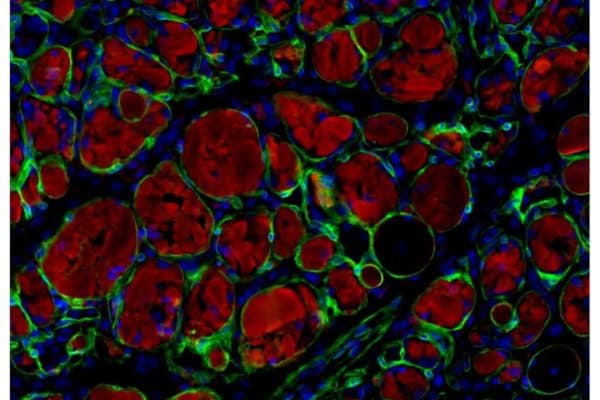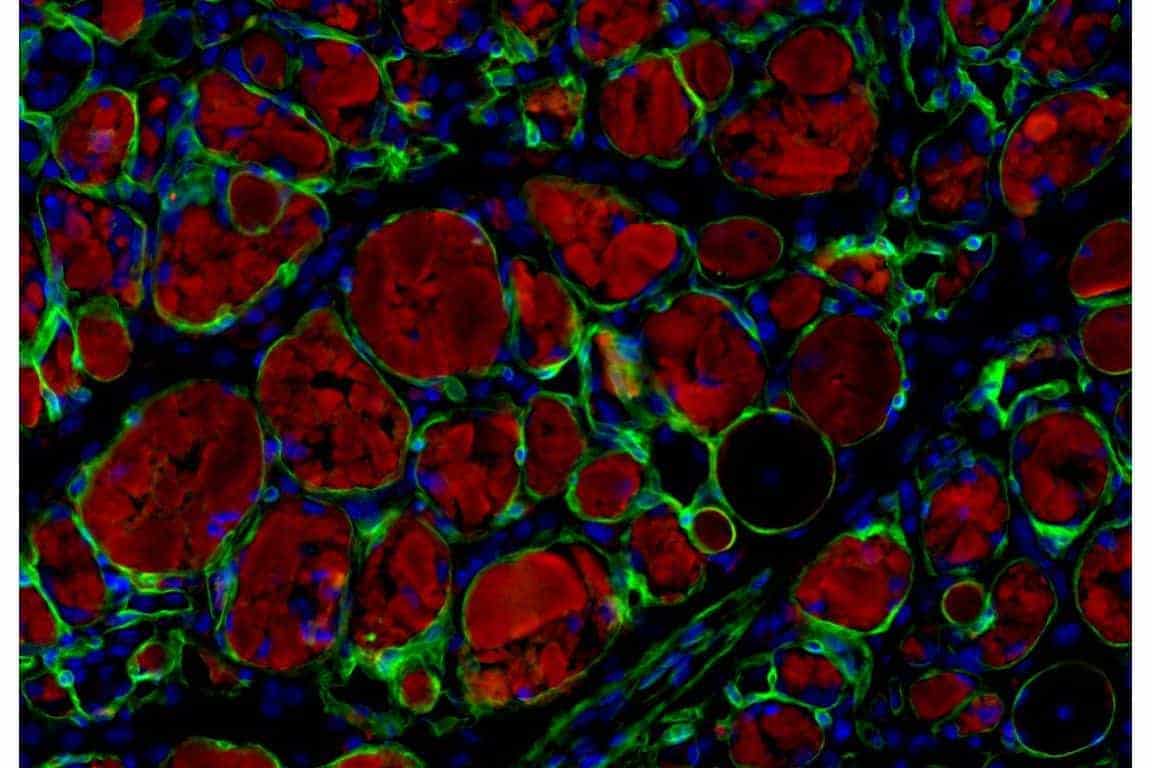Human urine-derived stem cells have robust regenerative potential

The Wake Forest Institute for Regenerative Medicine (WFIRM) researchers who were the first to identify that stem cells in human urine have potential for tissue regenerative effects, continue their investigation into the power of these cells. In their latest published study, they focus on how telomerase activity affects the regenerative potential of these and other types of stem cells.
Telomerase is an enzyme that is essential for the self-renewal and potential of different types of stem cells. Telomerase activity is also closely related to longevity. The research team investigated the regenerative significance of telomerase activity, particularly in terms of characteristic cell surface marker expression, multipotent differentiation capability, chromosomal stability, and safety of in vivo formation of tumors.
Their findings provide a novel perspective to evaluate the capacity of telomerase-positive human urine-derived stem cells to become a wide variety of other cell types, and to be used as an optimal cell source for stem cell therapy or cell-based tissue regeneration.
WFIRM’s Yuanyuan Zhang, Ph.D, lead author of the paper published by Frontiers in Cell and Developmental Biology, said that human urine-derived stem cells can be easily isolated from urine samples which offers clear advantages over stem cells from other sources, like bone marrow or fat tissue which often require a surgical procedure for collection.
“Being able to use a patient’s own stem cells for therapy is considered advantageous because they do not induce immune responses or rejection,” said WFIRM Director Anthony Atala, MD, who is a co-author of the paper. “Additionally, the non-invasive collection method is suitable for rapid clinical translation.”
The study demonstrates that human primary urinary stem cells with positive telomerase activity act as a distinct subpopulation with potential regeneration capacity in both cell growth and its capacity to become other cells, Zhang said. Better understanding of alterations in this cell subpopulation throughout the human lifespan, and how they translate into, aging, kidney damage, or cancer, among others will be beneficial overall.
“As a safe cell source, telomerase-positive human urine-derived stem cells have a robust regenerative potential, which might induce better tissue repair,” said Zhang.
The authors declare that the research was conducted in the absence of any commercial or financial relationships that could be construed as a potential conflict of interest. This work is partially supported by Research Grants from the National Institutes of Health NIDDK (R21DK071791), (R56DK100669), NIAID (R21AI152832), and (R03AI165170).
Additional co-authors include: Yingai Shi, Guihua Liu, Rongpei Wu, David L. Mack, Xiuzhi S. Sun, and Xuan Guan.





